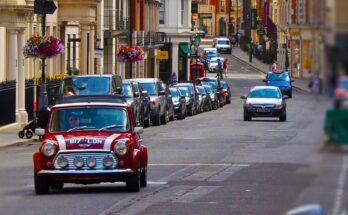 How to achieve a simpler, more sustainable lifestyle
How to achieve a simpler, more sustainable lifestyle
More and more people are choosing to drop out of the rat race and live off the grid. We show you how to join this movement and achieve a simpler way of life.
In the UK, there is a growing number of people choosing to live off the grid; following a simpler, more eco-friendly lifestyle that, in many cases, is free from the constraints of conventional society. And as revealed in the 2017 film, Hampstead, living off-grid can be very rewarding! Off-grid living is not for everyone, but it can offer a number of benefits, and we show you how you can make this kind of lifestyle work for you.
Few people realise that there are many off-grid homes scattered around Essex. We have some of the country’s sunniest weather, so this certainly makes living off the grid a little more pleasant during the winter months. Othona in Bradwell has been running for years as an off-grid Christian community, and many individuals have created small cabins and river boats to live off grid on.
Set your boundaries
Living off-grid means different things to different people. For some, it simply means disconnecting from a mains power supply, while for others it’s dropping completely out of conventional society and living off the land. And for others again it lies somewhere in between. So before you begin planning, think carefully about where your boundaries lie and how big a change you’re willing to make.
Choose the right living space
One of the first things you need to decide is where to locate your off-grid home, and what form this home will take, for example a rustic cabin, flexible mobile home or modern eco-home. It’s a good idea to locate your home close to woodland as this will provide you with a fuel supply, and food and water source. However, finding suitable, affordable land in the UK can be tricky, and you’ll also have to look into local planning restrictions before beginning any work.
Generating power
One of the key things you will need to consider when planning your off-grid lifestyle is how you will generate energy. You may choose to forgo energy altogether and really get back to basics, but if you prefer to keep some creature comforts there are several options available to you.
Solar, wind and hydro are all reliable and inexpensive energy sources, and are even more effective when used in combination with each other. You might also want to explore the possibilities of geothermal energy, which is both clean and reliable, and isn’t reliant on the weather. Some companies now also produce batteries that can power entire homes, which eliminates the problem of how to store energy for later use.
Whichever energy source you decide on, it makes sense to have a back-up small generator that can be used in case of failure or malfunction. And don’t forget you will also need a power source while you are building your eco home so it’s worth considering generator hire to meet your temporary energy needs.
Grow your own
If you want to be fully self-sufficient in your new life, you will need to grow and produce your own food. Perennial plants such as sorrel, asparagus, fruit and nut trees, berries, and mushrooms are a great starting point, providing consistent and nutritious food year after year. As your expertise grows you may wish to expand your vegetable garden or even take on livestock for a regular supply of meat and dairy. Another option is to barter or trade with local suppliers for items that you can’t provide for yourself.
Things to consider
If you are planning to live off-grid there are a few key things you need to consider. For example, you may not need a mains power supply but, depending on your living arrangements you may still need running water and sanitation. It’s also worth noting that in the UK even off-grid properties are still liable for council tax, so make sure you factor that in when calculating your costs.
Living completely off-grid is pretty difficult to achieve in the UK, but with careful planning, perseverance and commitment you can escape the rat race and create a simpler, more sustainable lifestyle.



